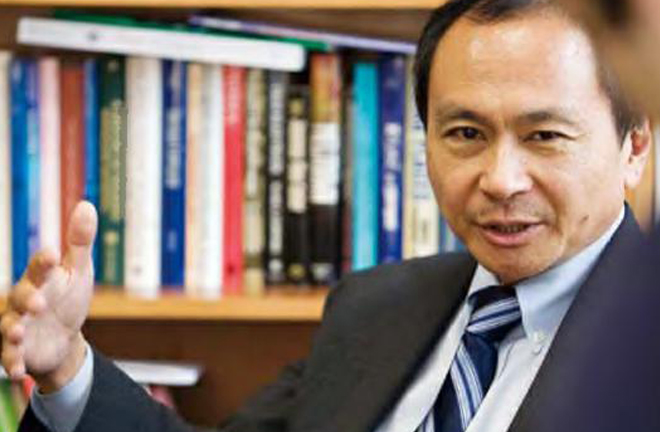China got to modern state first: Fukuyama

“China was the first country to create a modern state, the first modern state apparatus under the non-patriarchic system,” said Francis Fukuyama, a professor from the Center on Democracy, Development and the Rule of Law at Stanford University. Fukuyama made the remarks in his speech titled “Political Order” at the State Governance and Corporate Governance symposium held at the Center for Industrial Development and Environmental Governance at Tsinghua University on April 21.
Fukuyama cited renowned German political economist Max Weber’s view to support his opinion. Weber held that China created a modern state apparatus, but it was more of a “patriarchic” state than a modern one.
According to Weber, such a state is like private property of an individual. Occupied by elites, it can be given away or inherited. A modern bureaucracy is run by stratified elites. This kind of institution was actually shaped as early as the Han Dynasty (206 BC-220 AD), when China had realized political modernization to a certain degree. The reason why Western countries don’t recognize it is because China’s political modernity wasn’t accompanied by industrial modernization, therefore it is not regarded as “real” modernization.
However, the impetus to create a modern state institution, Fukuyama said, was the pressure of military competition.
Fukuyama elaborated on Chinese history, noting that the Spring-Autumn Period (770-476 BC) lasted nearly 300 years, during which multiple political entities fought more than 1,200 times. The Warring States Period (475-221 BC), which spanned more than 250 years, witnessed 468 wars. During this period of more than half a century, there were only 89 years without warfare.
A unified, centralized political structure was then needed to bring the war-ridden age to an end, so the Qin Dynasty (221-206 BC) was established, ushering in the institutionalization of state. The earliest modern state institution had therefore appeared in China 2,300 years ago, but Western scholars have failed to recognize such a great historical achievement, said Fukuyama.
He pointed out that Western scholars don’t understand problems in China’s political institutions because they are unfamiliar with the country’s ancient history and political culture.
Characteristics of the Chinese civilization were fostered in history, as Confucianism laid a common cultural foundation for the shaping of academic thoughts, development of the man-of-virtue culture and unification of language and character, Fukuyama said.
Fukuyama published two monographs, The Origin of Political Order and Political Order and Political Decay, in 2011 and 2014 respectively.

 PRINT
PRINT CLOSE
CLOSE